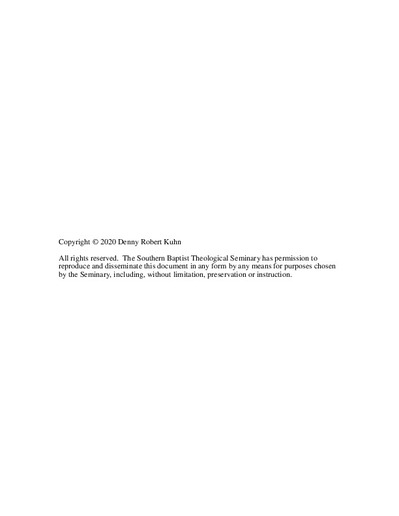| dc.description.abstract | This dissertation is a critical comparative analysis of two twentieth-century works of profound philosophical, moral, and cultural criticism: C. S. Lewis’ The Abolition of Man (1944) and Max Horkheimer and Theodor W. Adorno’s Dialectic of Enlightenment (1944). Written during, and greatly influenced by, the horrors of WWII, both works attempt a theoretically rigorous and substantive account of the seemingly precarious state of affairs for humanity in their times. And yet, intriguingly, there appears to be no reciprocal influence (or even an awareness of the other) in either direction between the authors. Notwithstanding, the authors explore many common themes including the following: the history of Western civilization, the nature of reason and rationality, human nature, the subject-object relation, the question of ethical normativity, the human struggle against and conquest of nature, the increasing detachment of science from practical life, the encroaching dominance of industry and technology in the form of a growing technocracy, and the resulting loss of personal liberty and dignity through increasing forms of dehumanization in mass culture and society. In this regard, both works belong to the prominent corpus of twentieth-century conservative and radical critiques of the excesses of Enlightenment thought—a distorted view of rationality, a groundless system of morality, and a dehumanizing approach to culture—or Enlightenment rationalism.
For both assessments, the fate of Western civilization rests on a knife edge, while the diagnosis, prognosis, and proposed solutions they prescribe could not be more drastically different in their final analysis. The authors approach the past and present unfolding of this human drama from two radically different points of view on the ideological spectrum—on the one hand, Lewis the traditional, evangelical Christian, and, on the other, Adorno and Horkheimer, atheistic neo-Marxists, and founding members of the Frankfurt School and critical theory. In spite of the fascinating historical background and context of their writing, few scholars have examined these thinkers and their works together.
This dissertation argues, by way of critical comparative analysis, that Lewis, given his Christian theological and philosophical foundations, provides the more cogent and coherent evaluation of the problems for Western civilization due to the excesses of Enlightenment rationalism than the critical theorists Adorno and Horkheimer. The argument in defense of this thesis begins with a critical summary and analysis of the main lines of thought contained in Lewis’ Abolition and Adorno and Horkheimer’s Dialectic, each treated separately. The goal is to provide the reader with a careful exposition and explication of the two works, drawing on current scholarship in addition to providing new insights where possible. Next, I provide a critique of the two works based on three central themes: rationality, morality, and culture. I give special attention to the many fascinating similarities between Lewis and Adorno and Horkheimer, while also concentrating on the key differences in their overall theories, evaluations, and conclusions. The primary goal is to demonstrate the superiority of Lewis’ philosophical arguments, his greater prophetic and poetic vision, and the truth of the Christian worldview over against the atheistic, neo-Marxist alternative propounded by Adorno and Horkheimer. | en_US |

